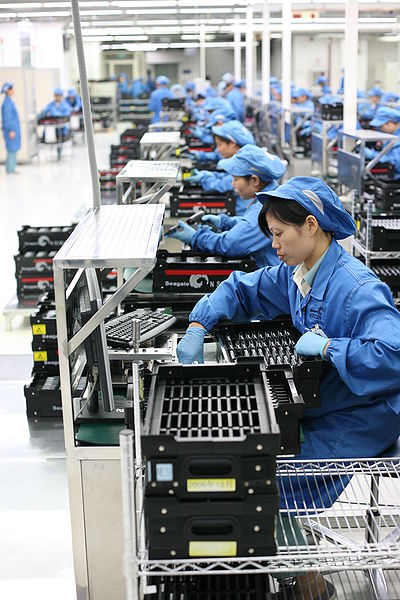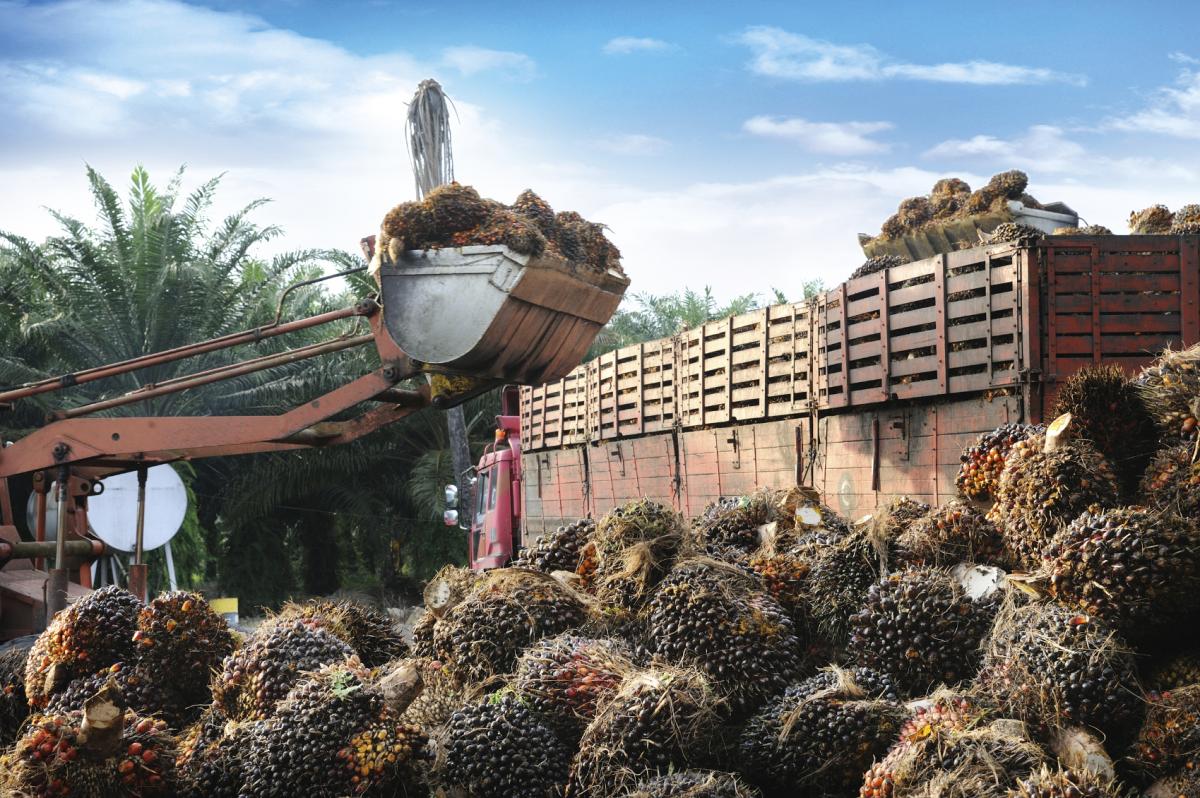Auditing can only give a snapshot of what is happening on the factory floor, so some companies are taking a more holistic approach to their supply chains
Supplier codes of conduct and the audits necessary to enforce them are increasingly giving way to more imaginative ways of improving labour practices and ethical standards.
While audits will certainly continue to play their part, several NGOs and major companies have been shifting the emphasis towards exploring the business case for better working conditions.
In this way, they are aiming to foster a more positive climate where the priority throughout supply chains is as much about worker satisfaction and productivity as compliance to a code of conduct.
“I have never yet met a worker who wanted a more compliant job,” says Rosey Hurst, founder and director of Impactt, a UK ethical business consultancy. “I think the name of the game is whether people have jobs they enjoy, that they feel are fair and that meet their needs in a number of areas. Doing more on that area would bring benefits to more people.”
Hurst cites research by Colombia University showing limited improvements in workplace conditions and rights from auditing. Part of the problem, long acknowledged but still entrenched, is that audits tend to incentivise adjustments to performance so that it meets any given criteria. Volkswagen’s cheating on emissions data is an obvious, if extreme, example. The other widely criticised aspect of auditing is that it can only ever be a snapshot.

Exploitation of workers, environmental degradation and other abuses in the supply chain can also be tackled by taking what Hurst calls “the high road”, that is, by approaching progress from a more collaborative and responsive standpoint, listening to workers’ concerns, goals and experiences and acting on them directly.
To this end, Impactt runs its Benefits for Business and Workers (BBW) programme, active in Bangladesh, India and Myanmar. This is a training scheme that she says has helped transform factories into good businesses by developing a skilled, well-paid, safe and loyal workforce.
Less than 18 months after BBW was launched, the Rana Plaza disaster in April 2013 highlighted the need for such initiatives in Asian supply chains – 1,130 people were killed, mostly garment workers, when the eight-storey building outside Dhaka collapsed.
BBW is led by a consortium of retailers – C&A, Debenhams, K-Mart Australia, M&Co, New Look, Primark, Target Australia, Tesco and Walmart – and private equity firm Tau Investment Management, with matched funding from UK Aid and in partnership with the Bangladesh Garment Manufacturers and Exporters Association.
The scheme trains factories in batches of six over a period of six months. This takes place largely in-factory, enabling hands-on learning. Factories receive 24 days of group training and each factory has four days of individual follow-up. Each sends six staff to the training: production manager, quality manager, industrial engineering manager, HR (human resources) manager, welfare officer and trial line supervisor.
Rewards include higher productivity and less staff turnover, Hurst says. “It’s about trying to look at the upside rather than downside. If you can prove that you can make more money by treating people better, then that’s the best way ahead.
“As for simply getting more workers into audits or improving auditing methodologies, you could argue that’s like arranging deckchairs on the Titanic.”
Hurst predicts interesting developments with social media: more up-to-date and personal feedback from workers, and possibly comparisons between workplaces.
While non-compliance is rife in Asian and other supply chains, she says, the existence of gender pay disparity in the UK and US shows that the developed world has no grounds for complacency.
On the plus side, job quality has improved significantly in China, she says, partly because the government understands the key role played by migrant workers in driving economic growth and avoiding social unrest.
Neste lessons
The Finnish oil and biofuels provider Neste is one company that is taking a holistic approach to monitoring its supply chain. Adrian Suharto, manager, sustainability and public affairs at Neste Singapore Pte Ltd, a division of the world’s largest renewable diesel producer, says its policy of buying palm oil direct from suppliers rather than traders over the past few years has ensured traceability and sustainability.

“We learnt that the other industries who bought palm oil were left very vulnerable if something went wrong and they didn’t know where the sourced palm oil came from. So we created a different system where suppliers have to comply with strict conditions on a range of criteria – these include labour regulations, deforestation, social policies etc. We emphasise engagement and encourage our suppliers to have improvement plans to address and manage corrective actions.”
Initial due diligence is only the first step, Suharto says. Neste then engages a third party independent investigation, depending on which countries are involved and the level of risk. For instance, some countries in Asia are considered high risk.
“If those suppliers are not certified we will ask for a timeline for action prior to supply. Every supplier will receive a due diligence form which they need to fill in before contract negotiations. The form covers topics from ownership, land use change, social and environmental policies, and many more.”
Neste believes sustainability is not an end point but a constant process, according to Suharto. “Neste has a complex supply chain, including sourcing of palm oil, rapeseed oil, animal fats and other waste and residues. It is a challenge to verify that compliance is 100% throughout that chain, thus working with our suppliers and third parties including NGOs, has become important. For our suppliers the contract differs from year to year, with new sets of rules.”

If Neste hears of possible infringements or shortcomings, the first step is for suppliers to acknowledge there is an issue, then take the necessary steps to tackle it. “We have even gone beyond our regulatory obligations to address some key concerns of our stakeholders,” Suharto says.
In early 2013, Neste strengthened its commitment to procuring sustainable renewable raw materials by becoming a TFT member. The company has worked with TFT to develop “No Deforestation” guidelines, which have been rolled out across Neste’s supplier operations.
At the heart of the guidelines is Neste’s commitment not to buy palm oil from plantations that have felled forest in contravention of legislation or that have been created in high carbon stock areas. The company has given TFT access to all the non-commercial data covering its supply chain and TFT has carried out risk-based verifications of the various stages of its supply chain.
Audits can help with aspects like ensuring oil traceability but it’s harder to find out from a single snap-shot audit, for example, if you are treating your workers fairly, Suharto says. So Neste urges suppliers to engage independent third parties to ensure compliance.
“One of our current focus areas is social issues, such as labour rights and human rights – within our own and our suppliers’ operations. The second focus area is our commitment to no deforestation. The challenge now is to make sure companies are really implementing measures to ensure compliance with our criteria.”
To reduce the amount of crop-based feedstock, Neste has continuously increased the share of waste and residues it has been procuring: from 35% of its overall usage in its refineries in 2012, to 53% (2013) and 62% in 2014. In 2015, 68% of Neste’s renewable raw materials were either waste or residues, the company says.
By implementing strict policies against irresponsible deforestation, and ensuring no-exploitation of human rights in its overall supply chain, Neste hopes to build a responsible and sustainable supply chain that adheres to the company’s strict policy for no-deforestation and supports farming communities and their families, as well as other workers.
Environmentalists, meanwhile, have criticised the whole basis of the biofuel industry. When land used for food or feed production is turned over to growing biofuel crops, agriculture has to expand elsewhere. This often results in new deforestation and destruction of other ecosystems, particularly in tropical regions in the developing world, they argue.
“The resulting heat-trapping emissions from clearing new land can be significant and may outweigh any emissions savings from the use of biofuels,” a Greenpeace spokesman says.
In response, Neste says the risk of uncontrolled forest conversion should be mitigated by expanding the application of the existing biofuel sustainability requirements to include food, feed and oleochemicals, as recommended by an EU study. “Europe has agreed on strict responsibility requirements to ensure that forests and other carbon-rich areas are not used for cultivation. However, these requirements apply currently only to biofuels.”
Auditing or no auditing, it seems we are some way from consensus about what even constitutes sustainability.
Apple audits in numbers
Apple is one multinational giant that extols the virtues of auditing. “We actively look for issues so that we can fix them,” states Jeff Williams, senior vice president of operations, in the company’s 2015 Progress Report.
“When we find violations — which we do in every audit we conduct — we view them as opportunities to partner with our suppliers to improve working conditions and to protect the environment. In 2014, we conducted 633 audits in 19 countries — the most since beginning our Supplier Responsibility initiative in 2006.”

Apple audits are led by its own experts and supported by local third-party auditors. “During each audit, we grade suppliers on more than 100 data points corresponding to each category of our Supplier Code of Conduct,” Williams states. “Our auditors are highly skilled at identifying when suppliers are covering up information.”
Apple says its audits are proven to improve supplier compliance. “Each year we review and raise our already strict requirements, and suppliers continue to meet our increasingly stringent standards,” Williams claims. “In 2014, facilities audited twice scored 25% higher than those facilities with first-time audits. Facilities audited three or more times scored 31% higher than facilities audited for the first time.”
Apple also randomly selects facilities to audit unannounced. “These surprise audits help ensure that our suppliers continue to meet our standards at all times — not just during scheduled visits. Apple conducted 40 surprise audits in 2014, where our team visited suppliers on the spot and inspected the facility within hours,” Williams writes.
Apple considers a “core violation” to be the most serious breach of compliance. These include cases of underage or involuntary labour, document falsification, intimidation of or retaliation against workers participating in audits, and significant environmental impacts, such as releasing untreated air emissions.
All core violations are escalated directly to senior management at Apple and the supplier, and must be addressed immediately. “When appropriate, we also report these violations to local authorities,” Williams concludes. Any supplier with a core violation is placed on probation until successful completion of its next audit. To date, Apple has terminated relationships with 18 suppliers, he says.
supply chains NGO ethical standards environmental degradation economy biofuels Palm Oil

